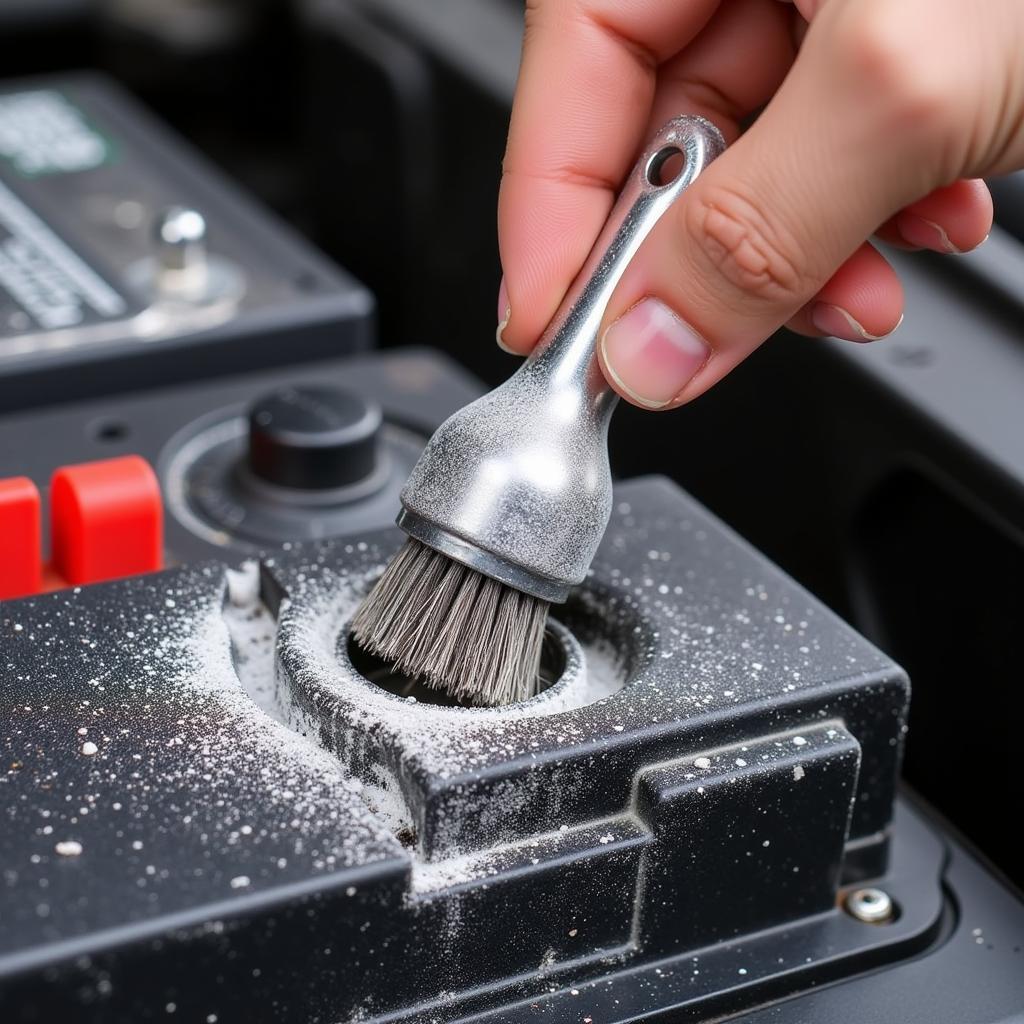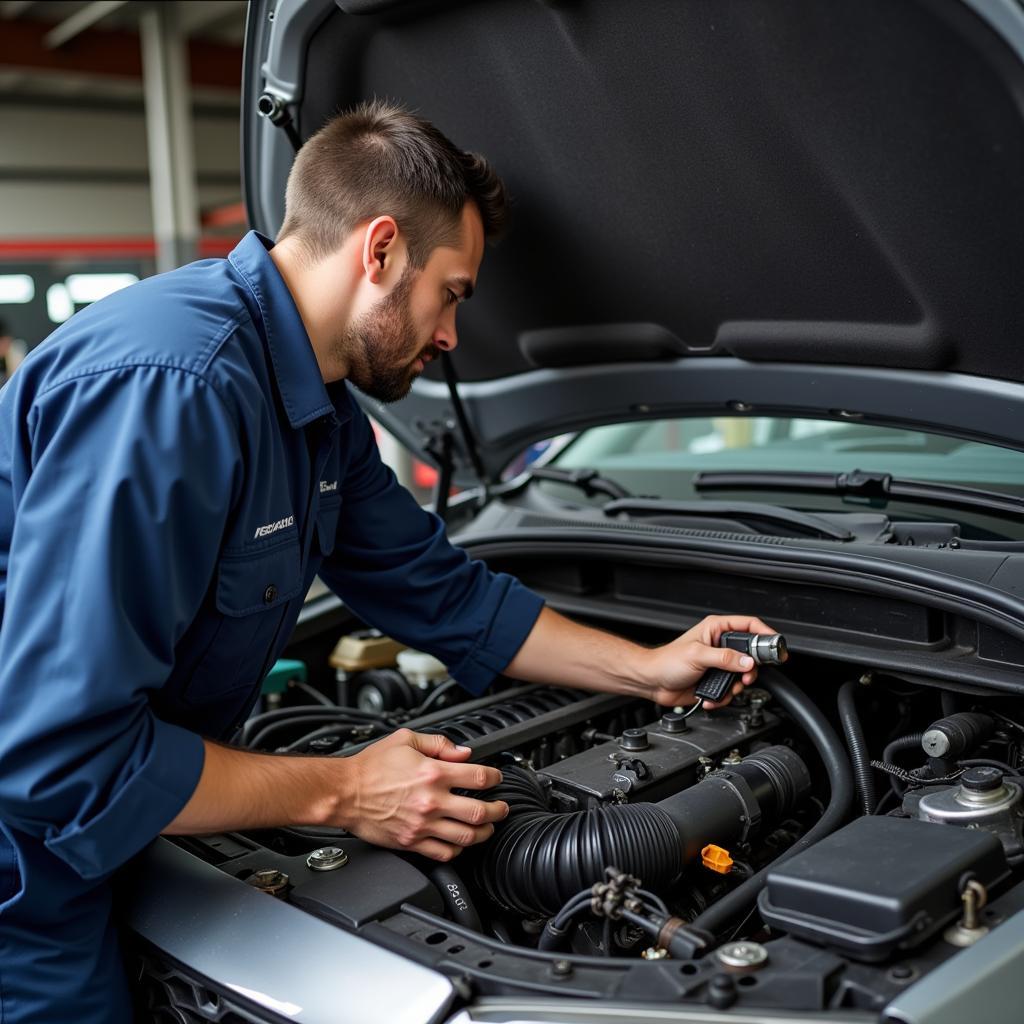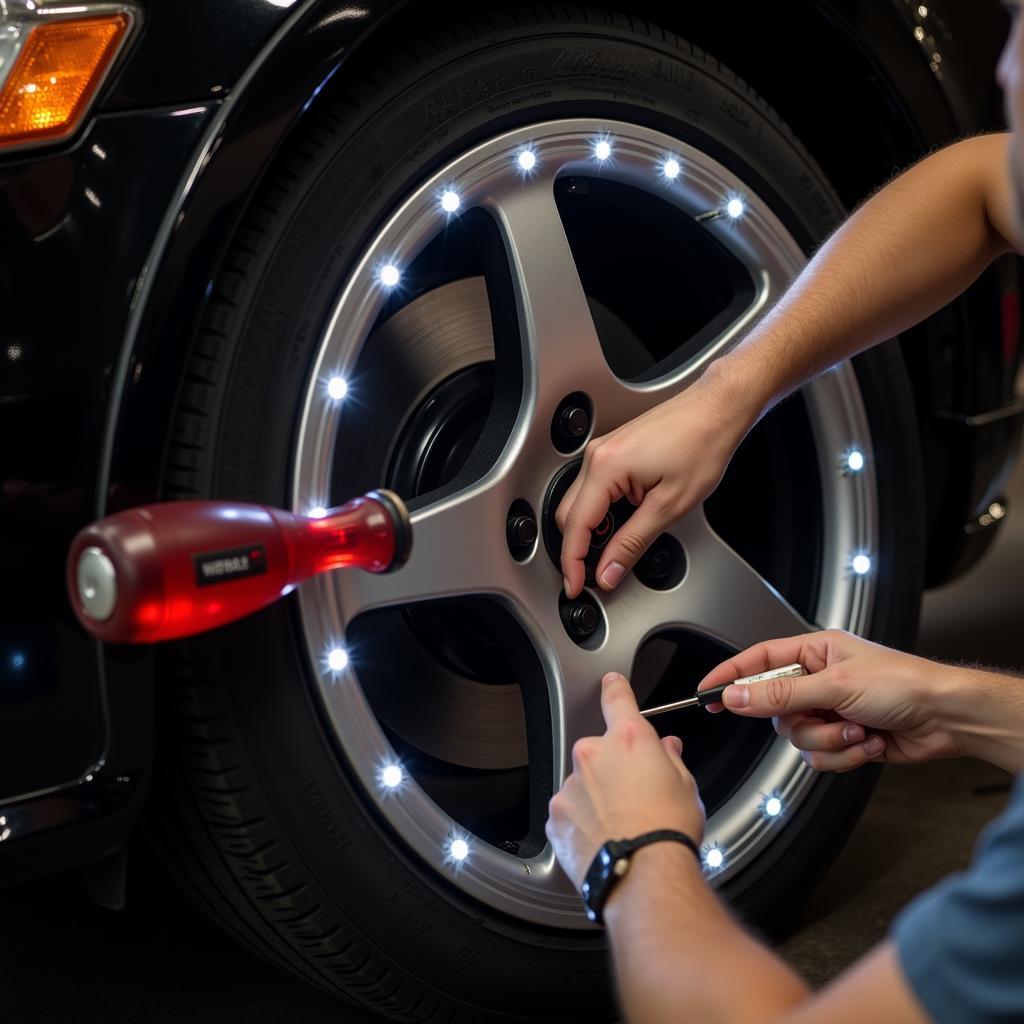When it comes to your car’s safety, nothing is more important than a reliable braking system. A faulty braking system can put you and others at risk, so recognizing the signs of brake problems is essential. If you notice any of these warning signs, it’s important to have your brakes inspected and repaired by a qualified mechanic as soon as possible.
What Are The Signs Of Brake Problems?
There are many signs that your car’s brakes may need attention. Some of the most common include:
- A grinding or squealing noise when braking: This could be a sign of worn brake pads or rotors.
- A spongy or soft brake pedal: This could be a sign of a leak in the brake system or a problem with the master cylinder.
- A pulling sensation when braking: This could be a sign of a problem with the brake calipers or a stuck brake piston.
- A vibrating or pulsating brake pedal: This could be a sign of warped brake rotors.
- A longer stopping distance: This could be a sign of worn brake pads, a leak in the brake system, or a problem with the brake booster.
- A burning smell when braking: This could be a sign of overheating brakes, which can be caused by a number of factors, including worn brake pads, a stuck brake caliper, or a faulty brake line.
- A brake light warning on your dashboard: This indicates a problem with your car’s brake system.
Why Is It Important to Get Brake Problems Fixed?
Ignoring brake problems can have serious consequences. A damaged brake system can cause:
- Accidents: Without proper braking, you won’t be able to stop your car safely. This puts you and other drivers at risk.
- More serious problems: Ignoring minor brake issues can lead to major problems. A leak in the brake system, for example, can cause brake failure.
- Costly repairs: The longer you wait to get your brakes fixed, the more expensive the repairs will be.
“Don’t let your brakes wear down to the point where you can’t stop safely,” says John Smith, a certified mechanic with 20 years of experience. “Ignoring the signs of brake problems is a recipe for disaster.”
What to Do if You Suspect Brake Problems
If you notice any of the signs of brake problems listed above, it’s important to have your brakes inspected by a qualified mechanic as soon as possible. A mechanic can diagnose the problem and recommend the appropriate repairs.
Here are some tips for diagnosing brake problems yourself:
- Inspect your brake pads: If you can see the brake pads, check their thickness. If they are worn down to less than 1/4 inch, they need to be replaced.
- Check your brake fluid: Make sure the brake fluid level is full. If it is low, there may be a leak in the brake system.
- Listen for any unusual noises: When you apply the brakes, listen for any grinding, squealing, or other unusual noises.
How to Prevent Brake Problems
Here are some tips for preventing brake problems:
- Get regular brake inspections: Have your brakes inspected by a qualified mechanic every 12 months or 12,000 miles, whichever comes first.
- Use high-quality brake pads and rotors: Choosing high-quality brake pads and rotors will help them last longer.
- Avoid aggressive driving: Aggressive driving, such as hard braking and speeding, can wear down your brakes faster.
- Keep your brake fluid topped off: Make sure the brake fluid level is full. Low brake fluid can lead to brake failure.
FAQ
What causes brake problems?
There are many reasons why brake problems occur, including:
- Worn brake pads: This is the most common cause of brake problems.
- Warped brake rotors: Warped brake rotors can cause a vibration or pulsating sensation when braking.
- A leak in the brake system: A leak in the brake system can cause brake fluid to leak out, which can lead to brake failure.
- A problem with the brake booster: A faulty brake booster can make it difficult to stop your car.
- A problem with the master cylinder: The master cylinder controls the brake fluid pressure. A problem with the master cylinder can cause brake failure.
How much does it cost to fix brake problems?
The cost of fixing brake problems varies depending on the severity of the problem and the make and model of your car. However, it’s important to note that the cost of ignoring brake problems can be much higher than the cost of fixing them.
How long do brake pads last?
Brake pads typically last for 25,000 to 35,000 miles. However, the life of your brake pads will vary depending on your driving habits and the quality of the brake pads.
How can I tell if my brake pads are worn out?
You can tell if your brake pads are worn out by visually inspecting them or by listening for grinding or squealing noises when braking. If you can see the brake pads, they should be at least 1/4 inch thick.
What happens if I don’t fix my brake problems?
If you don’t fix your brake problems, you risk having a serious accident. You may also damage other parts of your car’s brake system, which can lead to more costly repairs.
If you have any questions or need assistance with your brakes, feel free to contact AutoTipPro at +1 (641) 206-8880 or visit us at 500 N St Mary’s St, San Antonio, TX 78205, United States. We are happy to help!







Leave a Reply